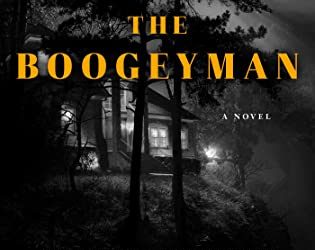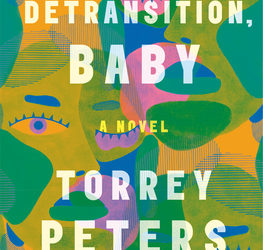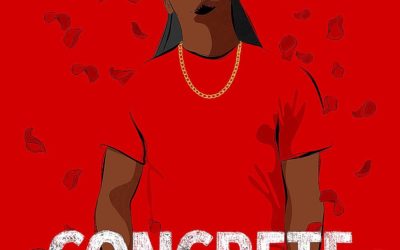By Taylor Jenkins Reid
The Seven Husbands of Evelyn Hugo (Review)
I never thought this book would live up to its incredible, endless hype.
I was wrong.
Evelyn Hugo is one of the most famous women in America, not just because of her award-winning movies, her Oscar, or her stunning beauty, but also because of her seven marriages. For decades, Evelyn Hugo has been off the radar, refusing any type of media coverage, until now.
To say that Monique Grant, a not-so-famous writer, is surprised to hear that Hugo has not only agreed to do a piece with the magazine she’s working for, Vivant, but that she has refused to do it with anyone but her is an understatement. But, once started, she has plenty of questions that need answering; Why did Evelyn Hugo have so many husbands? Why is she ready to share her story now? What was the secret to her success? And perhaps the most burning question: Who was Evelyn Hugo’s, true love? But more importantly: Why did she choose Monique to write her story?
“It strikes me as a unique form of power to say your own name when you know that every one in the room, everyone in the world, already knows it.”
The Seven Husbands would not, probably, have been a book I would have picked up on my own. But I kept hearing about it, everywhere, over and over and over again. And somehow none of it was negative. I couldn’t help it, with so much hype surrounding a book, I had to know what I’d think of it. My expectations were high but skeptical, and a little nervous that it would fall short of everything I had heard. Could a book really be that good? Was it really worth all the hype?
Yes.
It’s rare that I have little to no criticism for a book. Even with five-star reads, I’ll have a qualm or two. But I loved every moment, every page, every chapter of the story of Evelyn Hugo. I devoured it. It made me happy. It made me sad. It made me cry when so few books can do that to me.
First of all, the story is beautifully written. There’s just the right amount of description to really draw you in, but with that succinct sort of writing that leaves you with just enough and no more, and so wonderful to fall into. It’s very literary and careful, and eloquent.
I could have read this story in one sitting, but as it went on, I found myself unwilling to get to the end, because I loved reading this book so much that I didn’t want to leave. I wanted to be with Evelyn forever. I knew that anything I was going to read afterward, although enjoyable, would not be nearly as good.
But, in the end, even the ending left me happy, since the story is just long enough to say what it needs to say. Endings are difficult and can make or break a good book, but the ending of Seven Husbands was everything it needed to be and no more. It was perfect.
The story is also incredibly convincing. It’s written in a biography style, interspersed with articles from magazines and newspapers. The writing, but also the mixing of fictional names and stories with real famous figures, movie titles, places, and studios of the era makes the story seem so real. At times I found myself on the verge of wanting to look up a certain movie title, or a character’s filmography, only to remember that they don’t really exist. I’m not alone, if you look up Evelyn Hugo on Google, you’ll find that some of the top results are: ‘who is Evelyn Hugo based on’ and ‘is Evelyn Hugo real.’
What’s so great about the realism of the story is that it only adds to the serious topics that are addressed throughout. Evelyn Hugo is not only about what it was like to be an actress in the ’50s (and ‘60s and ‘70s and ‘80s), and the hardships that went along with that, but Reid also tackles a variety of other issues including, but not limited to, sexuality and homophobia, racial identity and racism, body image, addiction, sexism, and (of course) the effects of fame. This book does a great job of presenting a multitude of characters who are figuring out their identities and struggling with issues of intersectionality in a society that does not understand or accept all the pieces.
“I know the whole world prefers a woman who doesn’t know her power, but I’m sick of all that.”
I applaud Reid’s ability to present these stories in a meaningful, but unforced way. Not only that, but what I loved most about Evelyn Hugo was Reid’s ability to present a cast of characters with flaws, characters who may have done terrible things, but who I still cared deeply about. What is perhaps most significant about the book is that none of the characters are presented as wholly good or bad, but that everyone is morally grey in one way or another when it comes to the decisions they make. People do bad things but for good reasons, and people do good things with terrible motivations. These are my favorite types of characters to read about because they seem more authentic to me, and they tend to make me feel the most for them. This was definitely true of this book, which took me through the emotional gambit.
Because of the great characterization and character development, as well as the beautiful writing, I gave this book 5 out of 5 stars. Hands down. Not only would I recommend this to a friend but I already have. It has become, I believe, one of my favorite books of all time.
More Posts Like this
Chasing the Boogeyman Book Review
By Richard Chizmar Chasing the Boogeyman (ARC Book Review) An immersive read perfect for true crime lovers, "Chasing the Boogeyman” follows the mystery of a fictional serial killer in small-town Maryland through the perspective of an increasingly popular author. The...
Detransition, Baby (ARC Book Review)
Following a man who recently detransitioned and rejoined the boring business world, his accidentally impregnated girlfriend, and his trans ex-girlfriend, Detransition is an exploration of trans life in a way you’ve probably never seen it before…
Concrete Rose Book Review
By Angie Thomas Concrete Rose (Book Review)The third novel set in the Garden, Concrete Rose explores the backstory of Starr’s dad, Maverick Carter, as he finds out he’s a father at seventeen and struggles to know what to do: play it straight (and poor) or follow in...




